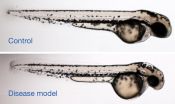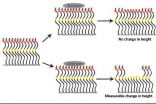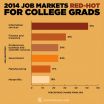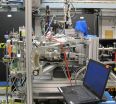(Press-News.org) Skin cancer is one of the biggest fears for one in two outdoor workers and when the boss and staff work together the sun safe message gets through, a QUT study has found.
The study, which found more than 50 per cent of outdoor workers rated UV radiation exposure at work as one of their biggest concerns, also identified how a workplace intervention could improve workers' behaviours and attitudes towards sun protection to reduce their risk of skin cancer.
QUT in collaboration with Cancer Council Queensland and Curtin University worked with 14 Queensland outdoor workplaces from farming, construction, public service and local government industries to develop personalised sun protection action plans.
After adopting these individualised plans, the number of workers who reported using sun protection increased significantly.
Professor Michael Kimlin and Associate Professor Monika Janda, from QUT's AusSun Research Lab, led the intervention program and the results have been published in the Journal of Occupational and Environmental Medicine titled Changes in Outdoor Workers' Sun-Related Attitudes, Beliefs and Behaviours: A Pre-Post Workplace Intervention.
"The message is simple, outdoor workers who see their workplace, supervisors and bosses supporting sun protection measures will follow their lead," Professor Janda said.
"Providing better programs, which take into account the specific workplace tasks and culture can make a difference."
QUT health promotion specialist Dr Marguerite Sendall, who was involved at the grassroots level in implementing the workplace interventions, said the study worked closely with workplaces to develop and implement a tailored sun safety plan, encouraging sun awareness and supporting sun protection practices at work.
"The program was about working together in partnership with workplaces, taking into account their individual circumstances and environment, and developing realistic and sustainable strategies," Dr Sendall said.
"It was this partnership and customised strategies that made this study a success and led to significant improvements in the way workplaces and employees approached sun safety."
Dr Sendall said after the 12 months intervention, the results revealed when a workplace was sun safe there was a significant improvement in the attitudes and behaviours of outdoor workers when it came to sun protection.
"For example, the proportion of workers who checked their skin for early signs of skin cancer increased after the intervention program, with 80 per cent reporting they had conducted a skin check in the previous 12 months," Dr Sendall said.
"Ten per cent more workers also had their skin checked by a doctor.
"The study found after the intervention, 20 per cent more workers said they usually or always seek natural shade, 25 per cent more workers wore broad-brimmed hats, 19 per cent more wore long-sleeved collared shirts and 16 per cent wore long trousers," she said.
Dr Sendall said there was also a shift in outdoor worker attitudes.
"The proportion of workers who agreed their workplace enforced sun protection and agreed their supervisors protected themselves increased by 10 per cent to 76 per cent of all workers," she said.
One of the workplaces to take part in the study was Goondiwindi Regional Council and workplace champion Andrew Singh said the tailored intervention had produced tangible results.
"At our council, after introducing the intervention, the road construction crew adopted a number of sun safe initiatives," Mr Singh said.
"For example, the council provided portable shade structures to be used during breaks, vehicle windows were tinted and our staff swapped baseball-style caps for broad-brimmed hats.
"Overall, what we found was workers were keen to follow these sun safe measures as they saw their initiatives were welcomed and keenly supported by the mayor, councillors and management."
Dr Sendall said the study highlighted the importance of a consistent sun safe workplace culture.
"Despite ongoing public health campaigns, outdoor workers remain a difficult to reach group but if we can take care in making the sun protection program really relevant to their personal circumstances and work environment, the potential health benefits are significant."
INFORMATION:
This was a Health Promotion Queensland Government-funded study. Full paper available
Media contact:
Sandra Hutchinson, QUT Media (Tue, Wed), 07 3138 9449 or media@qut.edu.au
After hours, Rose Trapnell, 0407 585 901
QUT study helps outdoor workers reduce their skin cancer risk
2014-10-14
ELSE PRESS RELEASES FROM THIS DATE:
Mediterranean diet, olive oil and nuts can help reverse metabolic syndrome
2014-10-14
For people with metabolic syndrome, a Mediterranean diet supplemented with extra-virgin olive oil or nuts may help reverse the condition, indicate findings from a clinical trial published in CMAJ (Canadian Medical Association Journal).
About 25% of adults around the world have metabolic syndrome. The syndrome exists in the presence of three or more factors such as large waist circumference, high blood pressure, low HDL-cholesterol, high levels of triglycerides and high blood sugar concentrations that can increase the risk of diabetes, heart disease and death.
Spanish ...
For one family, zebrafish help provide genetic answers
2014-10-14
Research in zebrafish has helped identify the cause of an unknown genetic disorder affecting a boy and two of his uncles, scientists report in an article published October 14 in the journal Genetics.
The findings demonstrate the growing importance of zebrafish as laboratory models of rare diseases. Such models allow geneticists to make sense of the deluge of candidate disease genes being uncovered by advances in sequencing technologies. Although rare diseases are uncommon individually, together they affect as many as 25 million people in the United States.
The project ...
Side effects of cancer prevention surgery can be helped with education program
2014-10-14
BOSTON –– More women are having ovary-removing surgery as a cancer prevention measure, but many are often unaware of sexual or psychological side effects of the procedure. A new study by researchers at Dana-Farber Cancer Institute shows a half-day educational program can help successfully deal with these issues by educating women on how to address them.
The program taught women how to manage some of the physical and emotional difficulties that can follow ovary-removing surgery and helped many participants resume satisfying sexual activity and reduce feelings ...
Scientists create new protein-based material with some nerve
2014-10-14
Berkeley — Scientists at the University of California, Berkeley, have taken proteins from nerve cells and used them to create a "smart" material that is extremely sensitive to its environment. This marriage of materials science and biology could give birth to a flexible, sensitive coating that is easy and cheap to manufacture in large quantities.
The work, to be published Tuesday, Oct. 14, in the journal Nature Communications, could lead to new types of biological sensors, flow valves and controlled drug release systems, the researchers said. Biomedical applications ...
Feeling guilty or ashamed? Think about your emotions before you shop
2014-10-14
Suppose you grabbed a few cookies before heading out to the grocery store and start to feel guilty or ashamed about breaking your diet. According to a new study in the Journal of Consumer Research, feeling guilty might find you comparing calories in different cartons of ice cream. Feeling ashamed might keep you from buying any ice cream in the first place.
"We examined the emotions of guilt and shame and found that when consumers feel guilty, they tend to focus on concrete details at the expense of the bigger picture. On the other hand, when consumers feel ashamed, they ...
Marketing an innovative new product? An exciting product launch could hurt sales
2014-10-14
Should every successful product launch involve some sort of dazzling spectacle? A new study in the Journal of Consumer Research tells us that this might be a great way to market an upgrade, but a flashy launch could backfire if a new product is truly innovative.
"The accepted wisdom is that consumers get excited about new and unique products they cannot immediately understand. However, these feelings of excitement can quickly change to tension and anxiety if we can't ultimately make sense of what a product does, especially if we are in a stimulating retail environment," ...
Jobs plentiful for college grads
2014-10-14
EAST LANSING, Mich. — The job market for new college graduates is red hot.
After several years of modest growth, hiring is expected to jump a whopping 16 percent for newly minted degree-holders in 2014-15, according to key findings from Recruiting Trends. The annual survey, by Michigan State University economist Phil Gardner, is the nation's largest with nearly 5,700 companies responding.
"Employers are recruiting new college graduates at levels not seen since the dot-com frenzy of 1999-2000," said Gardner, director of MSU's Collegiate Employment Research Institute. ...
New light on the 'split peak' of alcohols
2014-10-14
WASHINGTON D.C., October 14, 2014 -- For scientists probing the electronic structure of materials using a relatively new technique called resonant inelastic soft X-ray scattering (RIXS) in the last few years, a persistent question has been how to account for "split peak" spectra seen in some hydrogen-bonded materials.
In RIXS, low-energy X-rays from synchrotron or X-ray free-electron laser light sources scatter off molecules within the studied material. If those molecules include light elements, such as the -OH group in alcohols, the complex spectra RIXS produces are ...
Protein found in insect blood that helps power pests' immune responses
2014-10-14
MANHATTAN, Kansas — Pest insects may be sickened to learn to that researchers at Kansas State University have discovered a genetic mechanism that helps compromise their immune system.
Michael Kanost, university distinguished professor of biochemistry and molecular biophysics, led a study by Kansas State University researchers that looked at how protein molecules in the blood of insects function in insects' immune system. Insects use proteins that bind to the surface of pathogens to detect infections in their body.
"For example, when a mosquito transmits a pathogen ...
The Costco effect: Do consumers buy less variety at bigger stores?
2014-10-14
Do consumers make the same choices when products such as beer, soft drinks, or candy bars are sold individually or in bundles? According to a new study in the Journal of Consumer Research, consumers purchase a greater variety of products when they are packaged individually rather than bundled together.
"When consumers choose multiple products, they are influenced by the mere mechanics of choosing, regardless of their product preference. Consumers are more likely to seek variety when choosing from single rather than bundled products," write authors Mauricio Mittelman (Universidad ...




